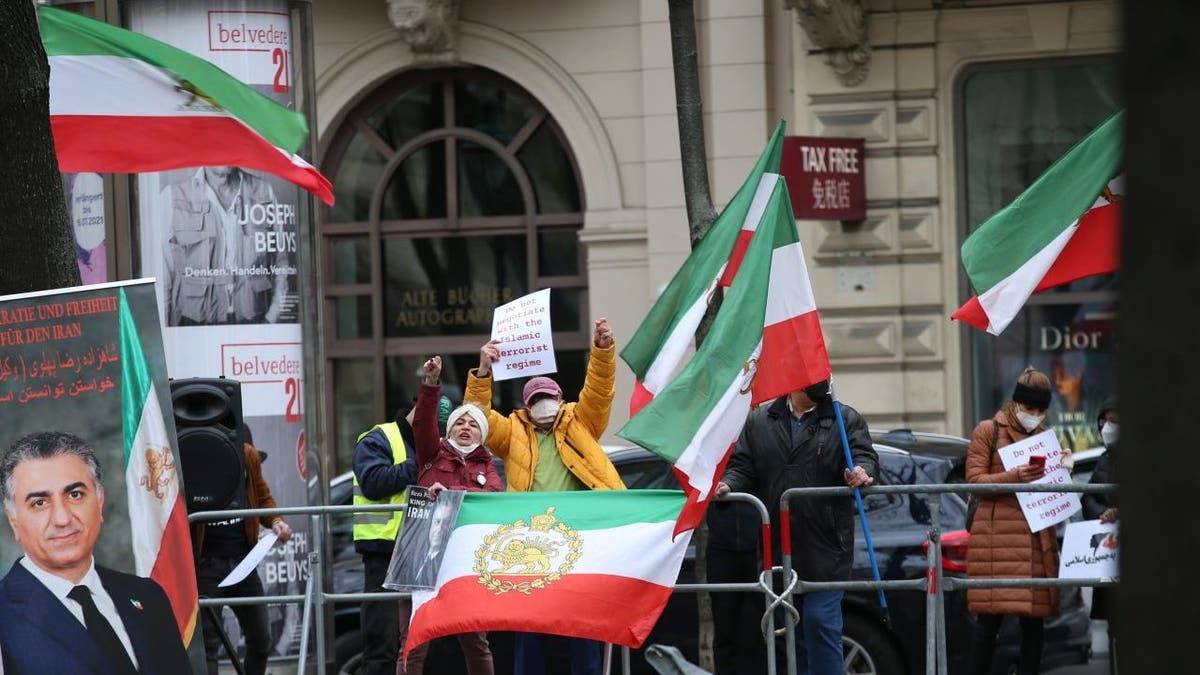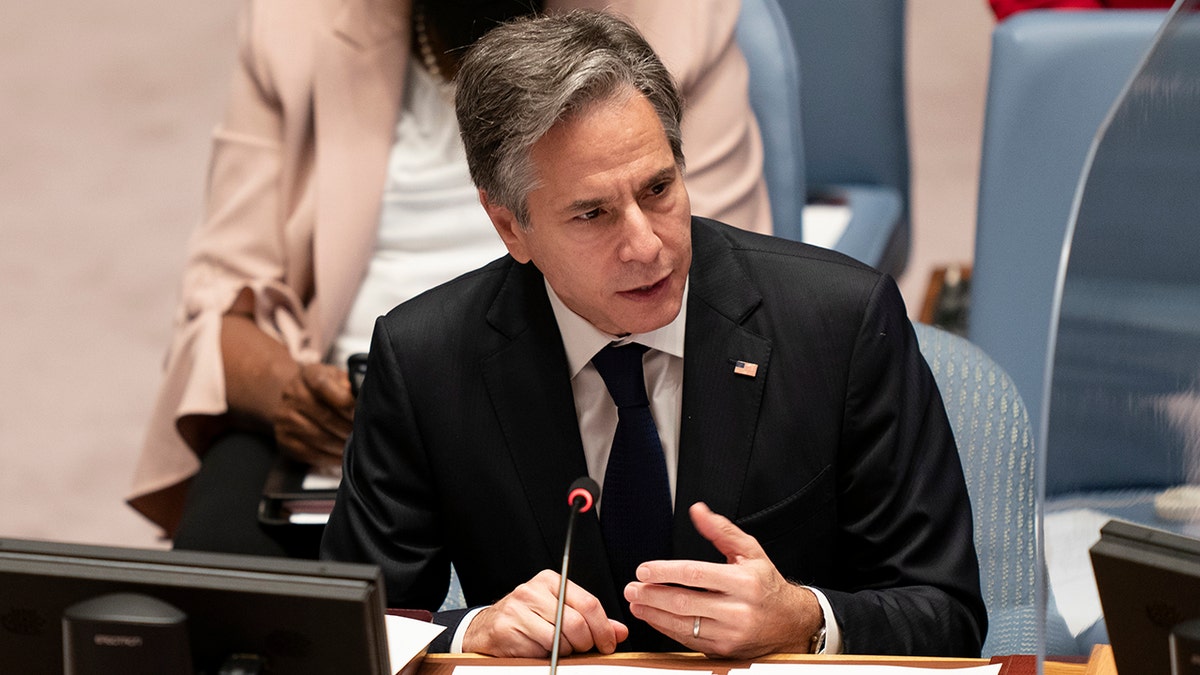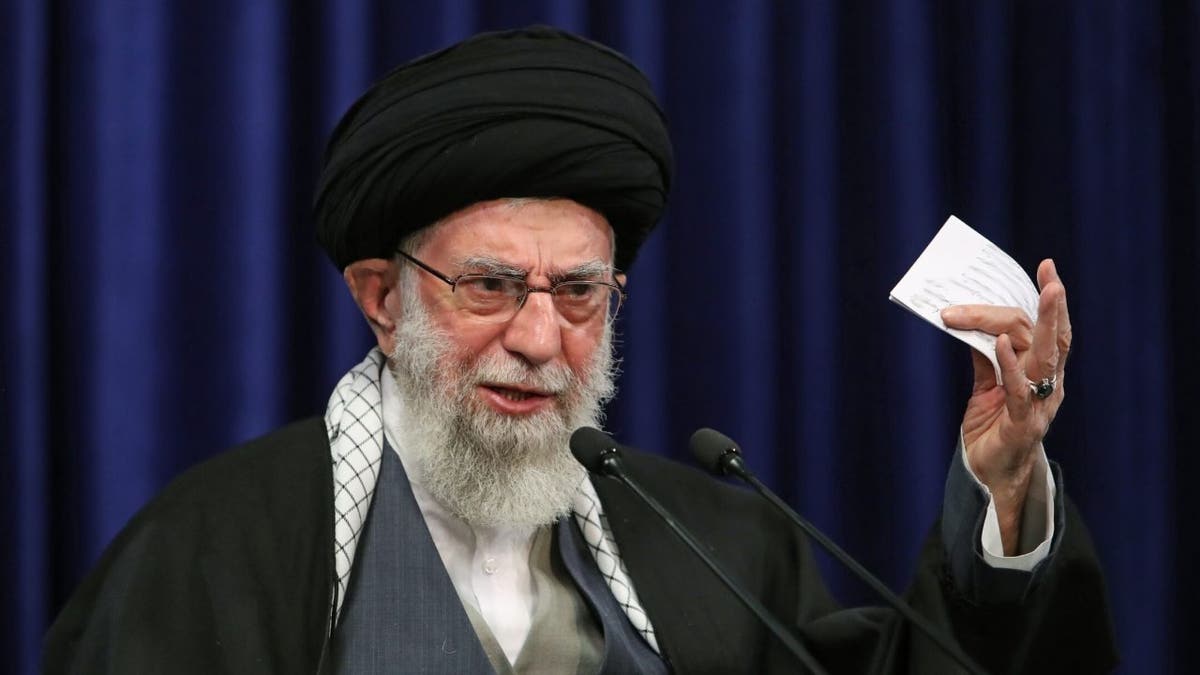Fox News Flash top headlines for November 23
Fox News Flash top headlines are here. Check out what's clicking on Foxnews.com.
A former national security official in the Trump administration said any negotiations with Iran that result in a weakened nuclear agreement would be an "insane deal" for U.S. national security.
Speaking from a Tuesday briefing, Rich Goldberg, the former director for countering Iranian weapons of mass destruction for the White House National Security Council, condemned recent reports that suggest the Biden administration is looking at "Plan B" options in striking a deal with Iran.

A group of anti-Iran demonstrators gather during a meeting on the Joint Comprehensive Plan of Action (JCPOA) in Vienna, Austria, on April 15, 2021. (Askin Kiyagan/Anadolu Agency via Getty Images)
President Biden vowed from the campaign trail to restore the Iranian nuclear agreement, also known as the Joint Comprehensive Plan of Action (JCPOA) – a nuclear deterrence safeguard the Trump administration removed the U.S. from in 2018.
Tehran has agreed to meet with world leaders next week to negotiate reviving the 2015 deal, but the administration has suggested that the U.S. has also looked to offer alternative solutions should the negotiations fail.
It remains unclear what exactly those solutions could be, but the possibility for increased sanctions and targeted strikes on Iranian nuclear facilities remains likely.
Last month, Secretary of State Antony Blinken said the U.S. and its allies "will look at every option to deal with the challenge posed by Iran," adding "we are prepared to turn to other options" should negotiations fail.

Secretary Antony Blinken speaks during a meeting of the U.N. Security Council on Thursday, Sept. 23, 2021. (AP Photo/John Minchillo, Pool)
But security officials from the previous administration fear weakened negotiations could lead to a greater threat from Iran.
"The Iranians are having their cake," Goldberg told Fox News. "They get to reap all the benefits of sanction relief… [while] running down the clock on the sunsets."
Iran has argued that the U.S. withdrawal from the JCPOA voided their commitments in the 2015 deal and has since used the move as an excuse to pursue nuclear development.
HEAD OF NUCLEAR INSPECTORS TO VISIT IRAN AS HARDLINE LEADERS CAST DOUBT ON POSSIBLE NEW DEAL WITH US
"The JCPOA still exists. Iran is still in the JCPOA – they’ve never left … even though they are completely out of compliance with this," Goldberg said.
Sunset provisions in the agreement will lift protective measures that bar Tehran from developing nuclear capabilities, including sanctions and missile embargos – both of which will expire in 2023.
Officials argue that despite Iran’s failure to comply with the JCPOA, the sunset provisions are still set to lift in just over a year – a policy they believe should be snapped back given compliance violations.
"It’s a completely insane deal if you want to negotiate this while continuing to offer the Iranians all the JCPOA sunsets ticking along as you go," Goldberg added.
Critics of the U.S.’s withdrawal from the international agreement said the move would destabilize the nuclear deal. Similarly, the Biden administration has argued the decision put the U.S. in a weakened position to negotiate with Tehran.

Iranian Supreme Leader Ayatollah Ali Khamanei delivers remarks on the JCPOA on Feb. 17, 2021, in Tehran, Iran. (Iranian Leader Press Office/Handout/Anadolu Agency via Getty Images)
But in answer to Fox News’ question on how the divorce from the nuclear deal potentially weakened U.S. negotiating abilities, Goldberg said the Trump White House had no other option.
"The Trump administration had no other choice but to withdraw America’s participation from the JCPOA to reclaim the leverage that we had lost under the deal," he said.
CLICK HERE TO GET THE FOX NEWS APP
"At the time, senior administration officials described this as being a choice between whether or not we have a crisis with Iran in 10 years – when Iran’s economy is robust and their long-range missiles are perfected … and then all the sunsets have kicked in and suddenly they say with perfect legitimization from the Security Council, ‘We are ready for a nuclear weapon.’" he said.
"Or are you going to do it when they are weaker … when we have robust maximum pressure in place?" Goldberg added.














































